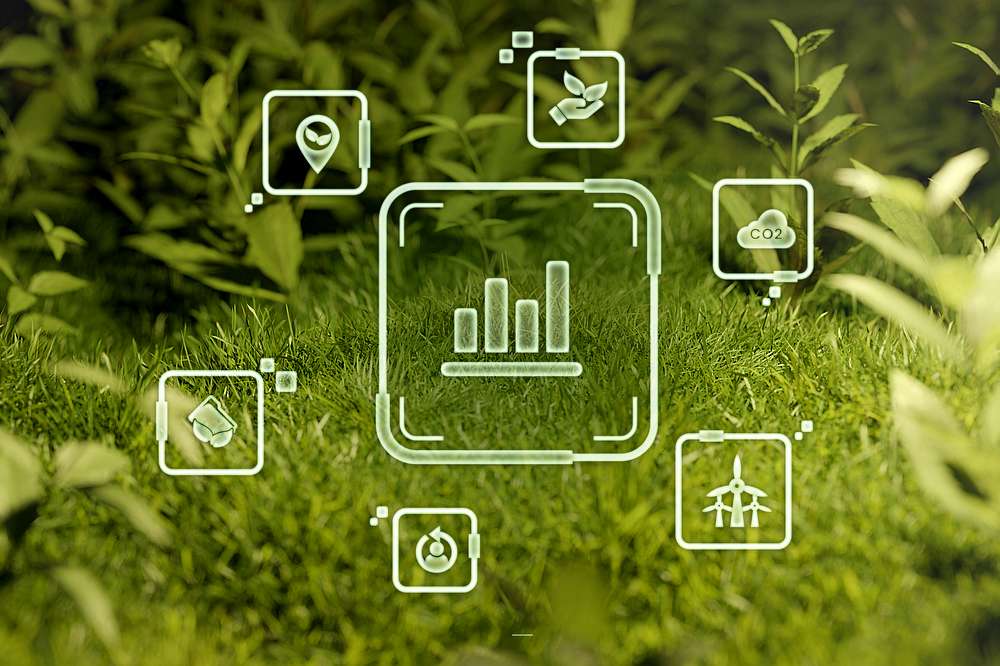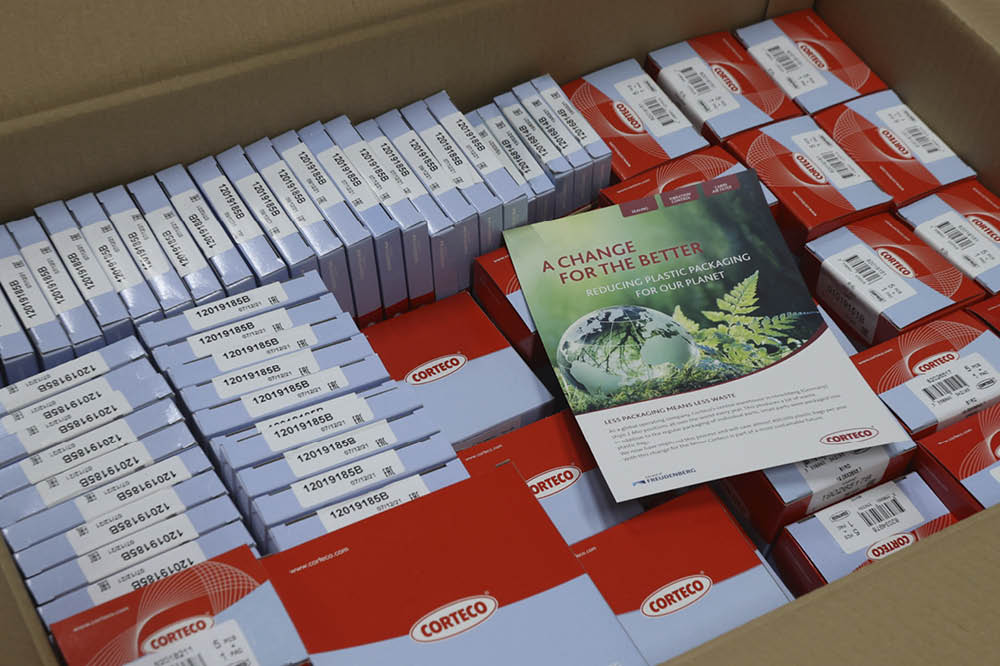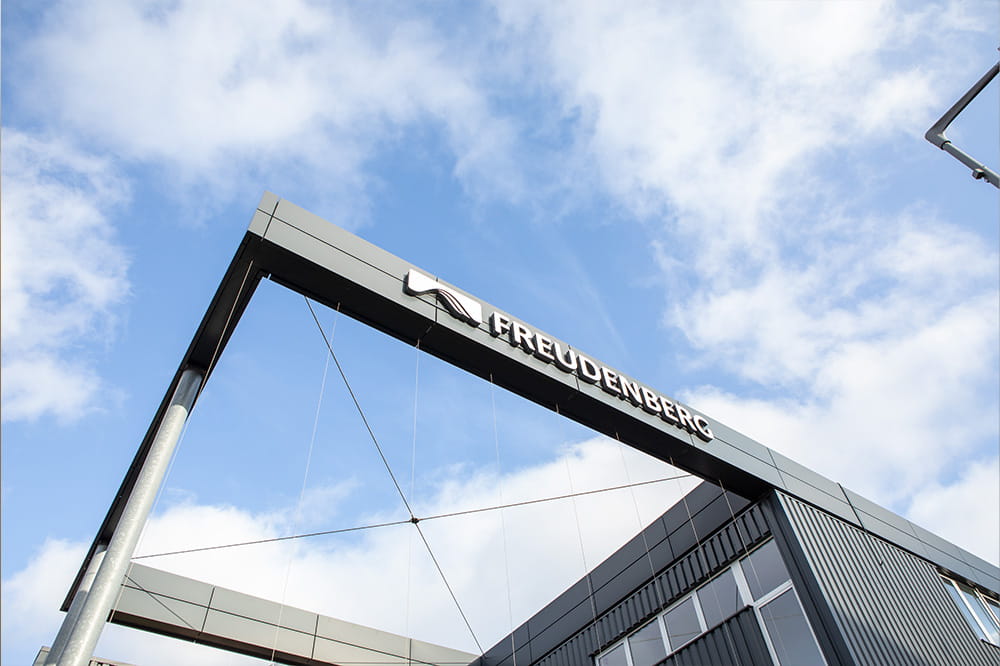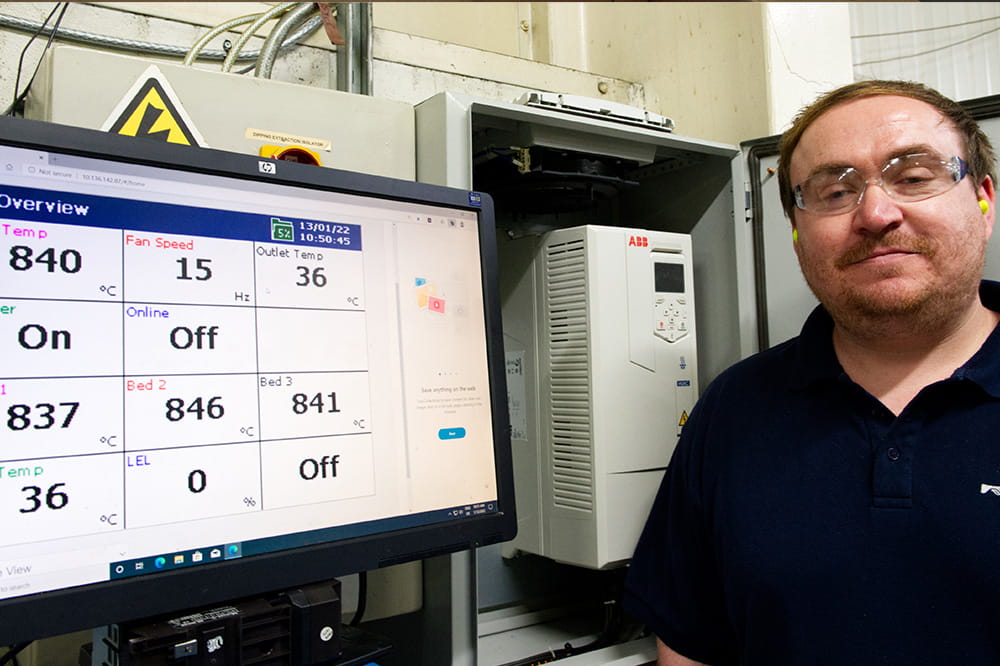Obtain news and background information about sealing technology, get in touch with innovative products – subscribe to the free e-mail newsletter.

14.09.2022
Pressing for Climate Protection
Recycling means: Waste is used as so-called secondary raw materials for new products. Turning old into new, waste into recyclables. Our raw mixing plant is now pursuing this sustainable approach even more rigorously than before.
For a very long time, it has already been a matter of course to collect paper and cardboard packaging waste separately at our mixing plant. What’s new is the method. Previously, waste ended up in a large dumpster that was open on top. As soon as it was filled, a disposal vehicle picked it up and replaced it with an empty one. There was a charge to rent the containers and each transport trip cost additional money.
When the paper waste is collected today, the former dumpster site remains empty. The raw mixing plant has acquired a baling press that compresses the voluminous paper waste into compact bales. Then these bales are simply stored temporarily at the former dumpster site, without the container. The great advantage: Because the waste is immensely compacted by the compression, it takes up significantly less space.
Fewer transports mean less CO2 emissions
This means that more compressed packaging waste fits on the previous dumpster footprint than before – 36 of the 350 to 400 kilogram bales, to be exact. As a result, the waste has to be picked up much less often. “We’re reducing the number of transports by 80 percent to 20 percent,” says Christopher Stiglmeier, HSE Officer, Mixing Facility Weinheim.
From an economic perspective, this eliminates both the rent for the containers and the majority of the collection costs. “The press will pay for itself in just a few years,” Stiglmeier has calculated. In terms of sustainability, less transport trips mean less CO2 emissions. In addition, the new contractor guarantees that the waste paper will be brought directly to a nearby paper mill to be recycled instead of incinerated.
Cleaning instead of burning
Speaking of incinerating, that is also the usual destination for oil-contaminated solid waste, especially rags that are used for cleaning in the mixing plant. This has come to an end. The new approach is to clean instead of burn, which a textile service provider is implementing at our mixing plant with its own reusable cleaning cloths. “Now there are 13,000 reusable rags in circulation at our plant. As a result, we were able to significantly reduce our oil-contaminated solid waste, which was classified as hazardous, to less than a quarter of the previous amount,” reports Stiglmeier.
More Stories About Sustainability

Join Us!
Experience Freudenberg Sealing Technologies, its products and service offerings in text and videos, network with colleagues and stakeholders, and make valuable business contacts.
Connect on LinkedIn! open_in_new









